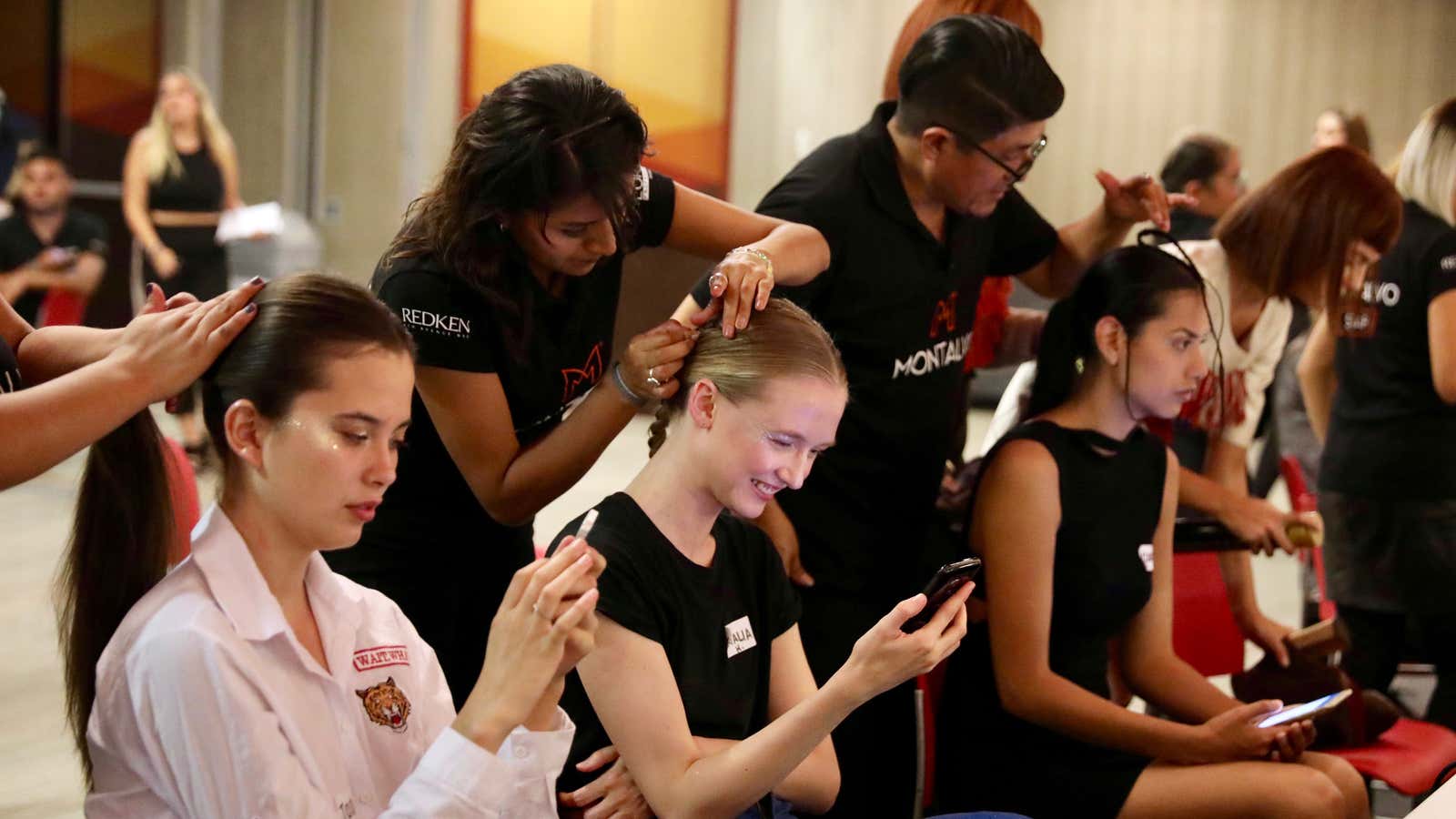The next time someone tells you to smile for the camera, feel free to frown and respectfully decline. While conventional wisdom holds that a teeth-baring grin makes you appear more attractive, research suggests that smiling in photos can have downsides.
A new study published in the April issue of Psychonomics Bulletin and Review (paywall) found that people who smiled in photos were perceived as looking older than they did with a neutral expression. But the research, led by Tzvi Ganel at Ben Gurion University in Israel, also showed that these perceptions fade with time—precisely because we’re so conditioned to associate smiling with youthfulness.
The study had three parts. In the first two experiments, 40 participants were asked to estimate the ages of 35 men and 35 women, based on their photos. Some participants looked at a smiling photo of a given person, while others looked at a neutral photo of the same person. Those who saw the neutral photos guessed the models were, on average, a year younger than the same models were estimated to be when smiling.
Yet in a second experiment, when asked to recall the results, subjects overwhelmingly remembered the smiling faces as more youthful. The same phenomenon occurred in a third experiment, when 42 different subjects were asked to estimate the ages of smiling, neutral, and surprised faces. Surprised faces seemed youngest of all to participants, while smiling faces looked oldest. But, again, they couldn’t recall their initial perceptions correctly in retrospect.
“The findings show, for the first time, that people can erroneously believe that smiling makes one appear younger, while at the same time rating smiling faces as older than neutral faces,” the researchers conclude.
So why does smiling age us up? A previous study (paywall), also conducted by Ganel, explains that smiling causes wrinkles around our eyes. Those lines aren’t emphasized when we have a neutral expression, and when we widen our eyes in surprise, the crinkles get smoothed out. But culturally, people tend to associate smiles with youth, which is likely why study subjects imagined that they rated smiling faces as youngest.
That said, the results aren’t necessarily universal or enduring. Perceptions of what makes for a good photo face vary from place to place, over time, and in different contexts. For example, studies indicate that in politically unstable nations like Russia and North Korea, people who smile in photos are perceived as dumb or untrustworthy. Historically, the grin wasn’t always in for Americans either, as these images of US Supreme Court justices illustrate. Meanwhile, the smile’s mostly frowned upon in fashion, whereas gravitas never goes out of style.
